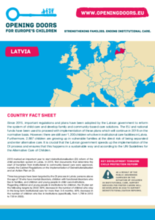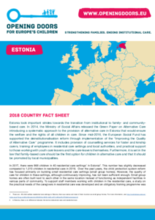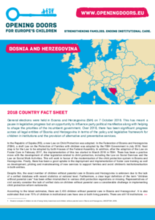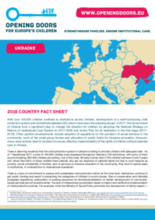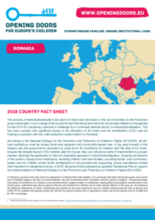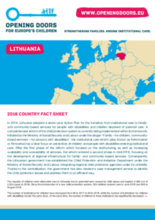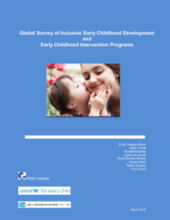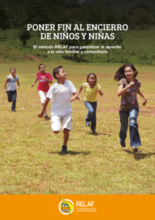Displaying 201 - 210 of 691
This factsheet highlights the developments and challenges still ahead in Poland and offers key recommendations to the EU and the national government to ensure that children are cared for in family-based settings.
This factsheet highlights the developments and challenges still ahead in Latvia and offers key recommendations to the EU and the national government to ensure that children are cared for in family-based settings.
This factsheet highlights the developments and challenges still ahead in Estonia and offers key recommendations to the EU and the national government to ensure that children are cared for in family-based settings.
This factsheet highlights the developments and challenges still ahead in Bosnia and Herzegovina and offers key recommendations to the EU and the national government to ensure that children are cared for in family-based settings.
The Opening Doors for Europe’s Children – a pan-European campaign that advocates for strengthening families and ending institutional care – released 16 country fact sheets about the progress with the transition from institutional to family- and community-based care (also known as deinstitutionalisation) in 2018.
This factsheet highlights the developments and challenges still ahead in Ukraine and offers key recommendations to the EU and the national government to ensure that children are cared for in family-based settings.
This factsheet highlights the developments and challenges still ahead in Romania and offers key recommendations to the EU and the national government to ensure that children are cared for in family-based settings.
This factsheet highlights the developments and challenges still ahead in Lithuania and offers key recommendations to the EU and the national government to ensure that children are cared for in family-based settings.
This report presents the findings of a global survey designed to map current implementation of Inclusive Early Childhood Development (IECD) and Early Childhood Intervention (ECI) programs, among other objectives, and outlines recommendations based on those findings.
El objetivo de este documento es identificar y transmitir las características del método que ha empleado RELAF para generar la adecuación de los subsistemas de protección integral de derechos de los niños privados de cuidados familiares o en riesgo de perderlos, haciendo énfasis en procesos de desinstitucionalización.


